#nick yemana
Explore tagged Tumblr posts
Text
Barney Miller 101: The Squad
Barney: In charge of this chaos. Practical, kind, patient, protective of his people, worries about them and does his best to help them. Dad In Charge. Jewish. Morals are more important than the letter of the law because sometimes the law, and bureaucracy, is stupid. All-around good guy. Deserves better.
Fish: Been there done that got the aches and pains to show for it. Old and going to complain about it because he damn well deserves it. 120% done with this shit. Reluctantly married and 50% prunes and painkillers by weight.
Yemana: The most unlucky gambler ever to walk this earth, and yet he continues, undaunted. Once got his sideburn shot off. Worst coffee maker the planet has yet seen. Japanese. Sentenced to 25 to life in Filing in 1960 and hasn’t escaped yet.
Harris: Dapper As Fuck. Writer, spends more of his time trying to make money than almost anything else, and annoyed by all this crap. Does Not Care until he really does. Makes a shockingly good looking woman. Black and proud. Best Hair Award 45 yrs running.
Wojo: His full name is unspellable unless you’re Polish, accept it. Built like a brick house and eats like a horse. Former Marine and proud of it. A straightforward, nice boy who has the most character growth by a country mile and is trying really hard even if he doesn’t always understand. Squad Slut, total himbo. Also plays the flute and faints at needles.
Dietrich: 90% of his personality is Fun Facts, Dramatic Effect, and feeding off other people feeling awkward. Pedantic as hell, wit dry as fuck, puns always. His jokes are terrible. Obsessed with Goethe for some reason. Grows his own wheat in his apartment. Always has a definition ready. Intellectual Asshole but cute about it (it’s probably the glasses).
Chano: Passionate af. Dancer, Puerto Rican, loves his country, a silly boy. Once had to write a burglary report and had to write his own name under ‘Victim’. Loves playing secret agent. Broke down sobbing when he had to shoot a guy and needed a week off to recover. Loved wearing a dress for mugging detail completely unironically.
Wentworth: Gets combat fever like CRAZY oh my god do not get in her way. Survived a relationship with Wojo, sanity intact. Does not care what people think about her and focuses like a laser. Protective af, tiny and will fite you. (and you will lose.)
Batista: Don’t fuck with her. Even tinier than Wentworth and even more determined. More arrests than everyone else combined. Gets Shit Done.
Levitt: He’s short and he’s angry about it. Fluent in ASL, determined to make detective no matter what it takes. Frequently misunderstands because he is convinced that there is a trick to getting this damn promotion and there isn’t. Has the worst suits, bless him.
15 notes
·
View notes
Text
Got a copyright claim on YouTube for this. 💀 But hey, if there ain’t any you supply them. @theol1-2
1 note
·
View note
Text

Return to Witch Mountain is the second film in the Witch Mountain Franchise and features the return of Kim Richards, Denver Pyle and Ike Eisenmann reprising their roles from the original film. The new script was written by Malcolm Marmorstein based on characters created by Alexander Key. The villains were Bette Davis and Christopher Lee of Hammer Horror Films fame. It was also the last film for Jack Soo best known for his role of Detective Nick Yemana on Barney Miller, who died of cancer in 1979.
0 notes
Text
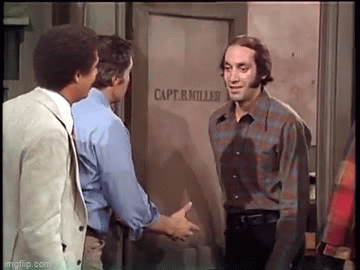
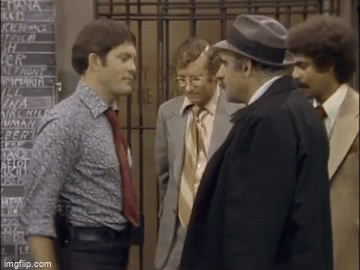

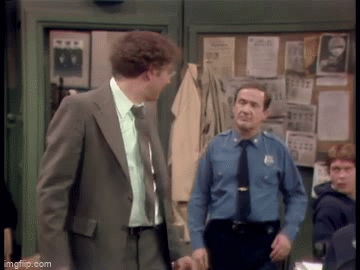





Barney Miller (1975-1983) ♥
#barney miller#wojo#wojciehowicz#ron carey#ron harris#ron glass#hal linden#max gail#arthur dietrich#steve landesberg#nick yemana#jack soo#chano amenguale#gregory sierra#sgt fish#phil fish#abe vigoda#carl levitt
40 notes
·
View notes
Text

Pen drawings
#barney miller#barney miller fanart#arthur dietrich#nick yemana#pen and paper#70s tv series#70s tv shows#fetv#vintage art
19 notes
·
View notes
Text



Jack Soo as Detective Nick Yemana on the television sitcom “Barney Miller” (1975-1982)
31 notes
·
View notes
Photo
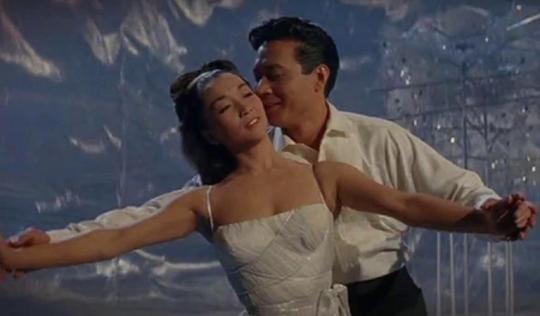
Flower Drum Song (1961)
M*A*S*H and Star Trek: The Next Generation have long been television favorites of mine. My parents introduced me to both shows – fixtures in American entertainment as Vietnamese refugee families fled to and renewed their lives in the United States. The writers of M*A*S*H, a show set during the Korean War, did not make it a secret that the show mirrored American involvement in the Vietnam War. M*A*S*H understandably focused its attention on its mostly white doctors, nurses, and non-coms. But from time to time, the show railed against war’s horrible effects on the local populace, on whose land such bloodshed is waged. In these episodes, M*A*S*H always cast Asian-American actors of varying ethnicities to play the Koreans (the value of these depictions of Koreans varies, but it is evident the all-white writing staff gave their best effort to portray Koreans in their full humanity). For a show that aired from 1971-1983, this was a radical decision as yellowface was still a widely-accepted practice in Hollywood. Star Trek, in its various incarnations, has espoused “Infinite Diversity in Infinite Combinations” from its inception. Numerous Asian-American recurring actors and guest stars of these shows have appeared in these shows I cherish (and many others) for decades. My memory flows with many of their faces and voices, even if I do not recall their names.
Adapted from C.Y. Lee’s novel of the same name, Richard Rodgers and Oscar Hammerstein II’s musical Flower Drum Song debuted on Broadway in 1958. The musical resembled nothing currently on the Great White Way, with an almost entirely all-Asian cast. Yet this musical still caused consternation. Some Asian-Americans expressed their rightful disapproval towards Rodgers and Hammerstein’s patronizing dialogue and racially insensitive characterizations. For this film adaptation by Universal (this is the only Rodgers and Hammerstein film adaptation without 20th Century Fox’s involvement), screenwriter Joseph Fields – who collaborated with Hammerstein on Flower Drum Song’s book – made major adjustments in order to stem controversy. Fields rearranged the plot and soundtrack and, most importantly, rewrote more than half of Flower Drum Song’s dialogue in order to accomplish a more respectful (if still imperfect) portrayal of all the musical’s characters.
The reworked Flower Drum Song attracted a star-studded Asian-American cast. So many in this cast are actors and actresses I have known only through their guest or recurring television roles, maybe the odd extra in a movie. To see them act in non-denigrating roles, sing, and dance in a major Hollywood studio feature film was revelatory. I admit, while viewing Flower Drum Song, feeling pangs of frustration over how Hollywood’s structural racism precluded too many in this cast from stardom. But that frustration was overcome by joy – a joy in seeing these Asian-American actors display their talents in a fashion I, even in 2020, long to witness. Though still constrained by Rodgers and Hammerstein’s stereotypical views towards people of Asian descent, Flower Drum Song is a unique cinematic experience.
Mei Li (Miyoshi Umeki) and her father, Dr. Han Li (Kam Tong) have stowed away on a ship carrying them from their home in China to San Francisco. The Lis are here to complete Sammy Fong’s (Jack Soo) request for a mail-order bride. Sammy is the slick-talking owner of the Celestial Gardens nightclub, who just so happens to be in a relationship with his principal showgirl, Linda Low (Nancy Kwan). So when the Lis arrive at the nightclub, Sammy realizes the pickle he has put himself in. In his attempts to dissolve the marriage contract, he has the Lis take up residence with the Wang family – including patriarch Wang Chi-Yang (Benson Fong), Master Wang’s sister-in-law Madame Liang (Juanita Hall, a mixed-race actor of African-American and Irish descent, in yellowface), eldest son Wang Ta (James Shigeta), and younger son Wang San (Patrick Adiarte). Secretly, Sammy has convinced Madame Liang to allow Mei Li to fall naturally in love with Wang Ta. Meanwhile, Linda is flustered with Sammy after learning of his mail-order bride plans. They separate, and she soon begins to start dating Wang Ta. Wang Ta is also the object of affection of childhood friend and seamstress, Helen Chao (Reiko Sato). If you could not guess by now, the plot of Flower Drum Song revolves around complicated relationship polygons.
Actors also appearing in this film are Victor Sen Yung as the Celestial Gardens’ emcee, Soo Yong as Madame Yen Fong (Sammy’s mother; this role was to be played Anna May Wong, but she died before production began), and James Hong as the head waiter at the Celestial Gardens. Virginia Ann Lee and Cherylene Lee play Wang San’s girlfriend and the Wang family’s youngest daughter, respectively.
In this rewriting of Flower Drum Song, screenwriter Joseph Fields, there is a greater focus on generational conflict. This film adaptation is unclear when the story takes place. But by looking at some of the technology and mannerisms, I will guess sometime after World War II, probably the 1950s. In this rendition of San Francisco’s Chinatown, first-generation Chinese immigrants live alongside the second and third generations. This mix creates a tension that permeates across the film – from how characters dress, behave in public (if they even go out in public) and private settings, and most notably romantic expectations.
The depiction of this tension is simplistic: those are not American-born uphold as many traditions as they can; those who are American-born are “Chinese” to some extent, but mostly do not think much about Chinese traditions. You are either assimilated into American society or not, says Flower Drum Song – a troublesome generalization that persists in Asian-American subgroups whose history in the U.S. is not as long as Chinese-Americans. But, in a rare instance for a Golden Age Hollywood film, Fields assures that this adaptation does not mock the first generation for not being as “American” as they could possibly be. Assimilation is on the terms of the characters, not contrived societal norms. Another anomaly in Flower Drum Song: the younger generations are assertively American, rather than offshoots of their elders. The younger generations’ unaccented English, wide range of characterizations, and their incidental Asianness (in that they do not feel the need to announce their Asian or Chinese heritage to others or to the audience) is unusual for the time in which this film was released. At the very minimum, Flower Drum Song tries to normalize Asian-American personhood. When the film fails to uphold that, it is mostly because of preexisting issues. In those instances, Fields cannot write his way outside how Rodgers and Hammerstein had already presented Flower Drum Song on the Broadway stage without compromising the duo’s artistic intent.
Many of the actors involved are not Chinese-American, but the performances are sincere, whether comedic or dramatic*. Having seen only a few of his works, I now wonder whether James Shigeta was just so naturally charming. As the go-to Asian-American romantic lead in Hollywood (not that he was cast in such a role often), his performance is seamless, appearing almost effortless. The same could also be said for Nancy Kwan, fresh off her well-publicized cinematic debut in The World of Suzie Wong (1960). An alumnus of the Royal Ballet School in London, Kwan also shows off her fancy footwork multiple times. Kwan’s dancing mastery is without question and, paired with choreographer Hermes Pan (best remembered as Fred Astaire’s principal choreographic collaborator), showcases her talents. As Mei Li, Miyoshi Umeki is slightly hamstrung by her role’s characterization. Yet as one of two actors who reprised the role they originated on the Broadway stage (along with Juanita Hall as Madame Liang; Jack Soo also appeared on Broadway, but switched roles), I was convinced by Umeki’s emotional fragility and shyness – all this for a character who has just arrived in a foreign land, bewildered by what she sees.
For the M*A*S*H fan in me, there is a special delight seeing Jack Soo and Patrick Adiarte here. Soo, best known as Det. Nick Yemana in the sitcom Barney Miller and for his distinctive face, is the natural comedian in the cast. His delivery – physically, verbally – is fantastic in this film. Adiarte, who also starred as Prince Chulalongkorn in The King and I (1956; I had not made the M*A*S*H connection when I watched that film four years ago) has a solo dance number (“The Other Generation”) in Flower Drum Song that I was floored by due to his athleticism.
As lead choreographer on Flower Drum Song, Hermes Pan directs several dancing segments for the film, each one markedly different from the other. The three most notable dance numbers are “Grant Avenue”; “Fan Tan Fannie”, “Love, Look Away” (the first two include Nancy Kwan; the other includes Reiko Sato and James Shigeta). Alongside the production design by Alexander Golitzen (1940’s Foreign Correspondent, 1960’s Spartacus); Joseph C. Wright (1942’s My Gal Sal, 1953’s Gentlemen Prefer Blondes); and Howard Bristol (1940’s Rebecca, 1959’s Anatomy of a Murder) and the costume design by Irene Sharaff (1951’s An American in Paris, The King and I), the dances are built for Technicolor – even though the film’s Chinatown looks too obviously like a soundstage construction. The abstractions in “Love, Look Away” offer the best example of this choreographic-production design-costuming collaboration. The use of empty space, props suggesting physical divisions and other people, and the enormous dreamlike atmosphere position the scene to be a cinematic manifestation of Helen’s unrequited love for Wang Ta (notably, the dancing segment uses the melody of a song not sung for Helen, but for another). In its ethereal beauty, “Love, Look Away” is a marvelous several minutes of cinematic dance – appearing in a decade where such scenes would only become more rare.
youtube
The order of the Rodgers and Hammerstein songs has been rearranged drastically from the original Broadway production; one song (“Like a God”) was dropped entirely because Universal’s executives, “feared that a number in which a Chinese American man compares himself to a god might offend audiences in the American South.” Whatever. The exclusion of “Like a God” does not affect the film much, as this adaptation of Flower Drum Song is a substantially different creature than the stage version. Owing to the performances, the two most notable songs of the musical carry over to the movie. The self-assured anthem “I Enjoy Being a Girl” (Nancy Kwan dubbed by B.J. Baker; Kwan did not protest the dubbing, despite the fact she could sing) may not contain Kwan’s singing voice, but it does boast her charismatic performance. In the film’s second half, “You Are Beautiful” has Shigeta’s and Umeki’s acting complement the former’s tender singing. But most of the songs – including two of the dance numbers when not considering the choreography (“Grant Avenue” and “Fan Tan Fannie”) – fail to leave an impression. Having Juanita Hall sing “Chop Suey” (an American Chinese dish) underlines the irony of having a non-white actor play someone of Asian descent.
In the Rodgers and Hammerstein repertoire, Flower Drum Song is among the least performed of their musicals. A 2002 revival with copious revisions remains the only production outside the musical’s Broadway and West End debuts – Flower Drum Song has not been on tour since the 1960s. It may not compare well musically, lyrically, and dramatically to Carousel, The King and I, or South Pacific, but it is miles better than the likes of State Fair. But the original production of Flower Drum Song, as written, is now considered offensive to contemporary sensibilities. As the preeminent musical theater compositional duo of their day (I would argue that they are the best in the medium’s history), Rodgers and Hammerstein – through The King and I and South Pacific and Flower Drum Song – intended through their stage musicals to break down the racial barriers that they abhorred. All three of these musicals incorporate ethnic and racial stereotypes that can never be stricken entirely from their film adaptations and subsequent musical revivals. Rodgers and Hammerstein’s intentions are well-meaning in their advocacy for cross-racial understanding, but their messages are muddled. Their work reflects a lack of racial sensitivity, at best.
The 1961 film adaptation of Flower Drum Song is the first major Hollywood studio movie to have a significant number of Asian-Americans as credited cast members since Go for Broke! (1951; a WWII film dramatizing the service of the 442nd Regimental Combat Team). Flower Drum Song ups the ante over Go for Broke! as it has an almost all-Asian cast – a feat not replicated again until The Joy Luck Club (1993) and then Crazy Rich Asians (2018). The environment in 1950s and ‘60s Hollywood excluded Asian-Americans in front of and behind the camera, so I can understand why there are only two films from that era with a majority-Asian cast. But I grade on a temporal curve. There is no excuse in modern Hollywood for the twenty-five-year separation between almost all-Asian casts. Are we to expect that the only Hollywood movies with nearly all-Asian casts/majority Asian casts in the future will be the sequels to Crazy Rich Asians?
For the longest time, Flower Drum Song was the one major Rodgers and Hammerstein musical I knew least about. I suspect, of the duo’s musicals that have been revived, it is the one in their repertoire that even self-professed theater buffs are least aware of. Being the only Rodgers and Hammerstein musical not distributed by 20th Century Fox does not help. Nor does the fact that its last home media release was on DVD in the 2000s. In 2008, Henry Koster’s Flower Drum Song was inducted into the Library of Congress’ National Film Registry. That honor marks the film as integral to the history of American cinema. As the constant writing of American cinematic history continues, as audiences become attuned to the history of non-white individuals in Hollywood, perhaps more people will see the importance of this movie. What would have happened if James Shigeta, Nancy Kwan, Miyoshi Umeki, Jack Soo, and their other co-stars were offered the same quality of opportunities of their white colleagues? We will never know. But Flower Drum Song can help the viewer envision the answer.
My rating: 7/10
^ Based on my personal imdb rating. Half-points are always rounded down. My interpretation of that ratings system can be found in the “Ratings system” page on my blog (as of July 1, 2020, tumblr is not permitting certain posts with links to appear on tag pages, so I cannot provide the URL).
For more of my reviews tagged “My Movie Odyssey”, check out the tag of the same name on my blog.
* My sister will tell you that she does not believe that anyone in this film’s love polygon has a genuine mutual love. I agree. Mei Li’s love for Wang Ta appears genuine, but that is the extent of it.
#Flower Drum Song#Henry Koster#Nancy Kwan#James Shigeta#Miyoshi Umeki#Jack Soo#Benson Fong#Juanita Hall#Reiko Sato#Patrick Adiarte#Richard Rodgers#Oscar Hammerstein II#Rodgers and Hammerstein#Joseph Fields#Russell Metty#Irene Sharaff#TCM#My Movie Odyssey
7 notes
·
View notes
Photo

Watching a YouTube of the Barney Miller tv show. Image of Jack Soo as Detective Nick Yemana. Jack Soo’s real name was Goro Suzuki. He changed his name in 1945 to avoid racism such as employers who would refuse to hire him if he said he was Japanese American. About 120,000 Japanese Americans were incarcerated in 1942 under Executive Order 9066 similar to what happened to Japanese Canadians except the US government didn’t take the property of Japanese Americans and released them in 1945 when the war ended. Goro Suzuki was incarcerated in Utah at the Topaz War Relocation Centre. He started working as an entertainer when he was released. He was a singer and got cast in the Broadway musical hit Flower Drum Song. He joined Motown Records as one of the first non African American singers. He appeared in movies and tv shows before being cast in Barney Miller. https://www.instagram.com/p/Cn_vpMZO_yG/?igshid=NGJjMDIxMWI=
0 notes
Photo
That time Nick Yemana went to visit family in Japan and made coffee for everyone.
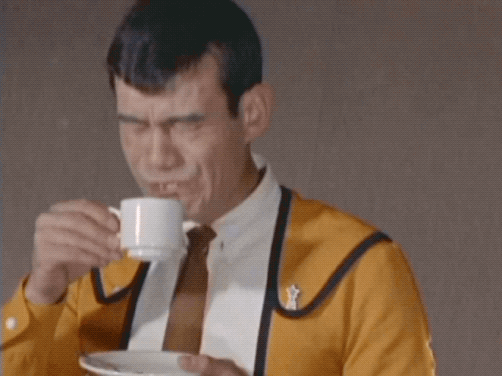
1K notes
·
View notes
Text
Wojo: miraculously finds stub of a pencil when he needs it
Nick: accidentally eats his eraser while using a pencil as a chopstick
Barney: never has a pen when he needs one
Harris: always caries a fountain pen
7 notes
·
View notes
Photo

“Sgt. Nick Yemena Sketch” (11 x 14, Oil on Acrylic Paper ©️Mark Tavares) This was another difficult one in that it is difficult to capture the subtle genius of Jack Soo’s performance or the horror that was Nick Yemana’s “coffee”. #oilpainting #caricature #portrait #sketch #barneymiller #jacksoo #police #sitcom #detective #badcoffee https://www.instagram.com/p/B_tHt20juzM/?igshid=qpq94lvhb4pi
0 notes
Text
Nick Yemana

Name: Nick Yeman
Age:
Relationship:
Sexuality:
Job:
Faceclaims: Jack Soo, Jin Akanishi
BIO
VERSES
0 notes
Text
youtube
#barney miller#hal linden#abe vigoda#max gail#ron carey#ron glass#steve landesberg#jack soo#phil fish#wojo#stan wojciehowicz#carl levitt#ron harris#arthur dietrich#nick yemana#Youtube
6 notes
·
View notes
Photo

A UFO Landed In Central Park
21 notes
·
View notes
Photo

Barney: Good news everyone, the national weather service has ended the snow advisory for the city and we can all go home for the weekend.
Levitt: Sir, does this include us uniformed officers?
Yemana: Only those tall enough to get through the snow.
9 notes
·
View notes
Text





Here's to 48 years of being the resident encyclopedia, the thinker, the reader, and the only one who always understands-- of becoming part of something and learning to love and be loved. Happy force anniversary, Sgt. Dietrich!
#barney miller#steve landesberg#arthur dietrich#max gail#wojciehowicz#wojo#hal linden#ron glass#ron harris#carl levitt#ron carey#nick yemana#jack soo
17 notes
·
View notes